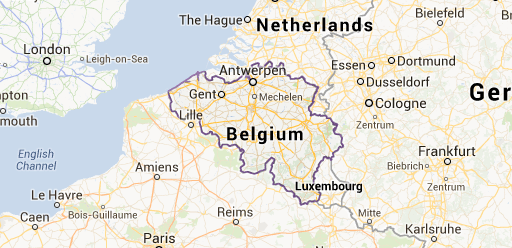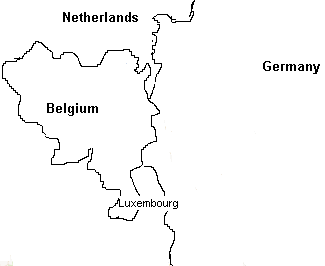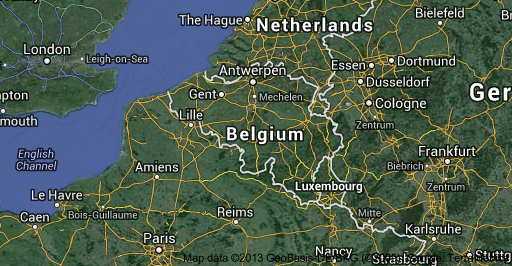Introduction
Globalization is generally described as the intensification of the environmental and communal interconnectedness. The circulation of people, resources, information and cultural symbols from a global scale perspective hastens it (Wilhelmina, 2010). In fact, globalization appears to be an amalgamating process that links knowledge and resources. On the other hand, localization is the institutionalization of the execution of policy within a particular place.
However, this process guarantees that all goods and services that can rationally be supply locally are done. Studies show that it is not competition based on the cheapest but on collaboration for the best. In essence, it is out of these two concepts that another paradigm emerges dubbed as Glocalization. This is the crossing point of the global and the local. According to Matusitz (2011) assertions, it is the cooptation of the global and the local. The process involves the forces of cultural homogenization and heterogenization, relationships, synchronization, and equilibrium.
Globalization and glocalization both have an impact on the environment since they involve the movement of people in pursuit of financial well-being, social interactions, and cultural acceptance. This means that people will move for different reasons to different locations. In Belgium, the three sets of concepts exist with glocalization recently taking a centre stage in a variety of circles including economic, food, and doing business.
In the Belgian perspective, it is a fresh cultural mix and change of model as well as practices targeted at adjusting to the local mindsets. The concept has resulted in the concentration of people in some areas as they pursue economic well-being while still considering cultural practices and social interactions. This study explores Belgium to establish whether there is significant environmental impact resulting from both globalization and glocalization.
Research Questions
- Has glocalization been successful in Belgium?
- Does globalization and glocalization impact on the environment?
- Do they affect the environment in the same way?
- How do the economy, social interaction, and culture in view of globalization and glocalization contribute to the degradation of the environment?
Below is the satellite Google Map for the location of Belgium

Literature Review
According to Wilhelma et al (2010), the globalization concept reflects the aspects of intensification of the geographical location with social interconnectedness often circulated by the movement of human. The movement consequently leads to the interaction of different cultures with different ways of doing business. Typically, globalization is about spreading business as wide as possible with the aim of increasing profitability while reducing geographical distances.
Wilhelma et al (2010) argue that globalization is a practice that results in the increased integration of the national economy while reducing the importance of political borders as far as financial, political and social aspects are concerned. The emerging and leading economies have been at the centre of globalization as individuals and businesses continue to flatten the world through global integration. The integration according to the authors has been facilitated by the competition among businesses and companies. Technology, particularly electronic media and computers continue to enable people anywhere to go global when they desire.
According to the authors, technology continues to make it difficult for one to separate globalization from localization and glocalization. The continuous interaction between the global and the local is brought by the fact that they are embedded in each other. The authors state that the global and local processes reconstitute each other since none of them is a uni-linear process as they occur simultaneously. The global processes do not exterminate the local differences but lead to the homogeneity of culture to a reasonable degree. Hence, they are consequently referred to as glocalization. Based on study literature, glocalization helps in the creation of social conditions that enable the localization of cultural innovations during the global-local dealings.
Similar to other scholars such as Khondker (2004) and Matusitz (2011), Wilhelma et al (2010) are also concerned about the emerging consequences of tensions between globalization and glocalization in socio-monetary development and the wellbeing of humanity. The authors state that glocalization can be viewed from the perspective of the flow of ideas, information, knowledge, traditions, money and commodities with the final objective of protecting and rebuilding the domestic economies globally.
They indicate that scholars have been seeking to understand how worldwide growth influence the local-level growth and how it forms and intercedes with the local influences in rising cities. As Khondker (2004) indicates, it is from this view that successful global products and services will enable the glocalization influences to be useful to the consumer globally and among diverse cultures. Such aspects make glocalization important as it entails the collaboration of global solutions with the unique domestic answers.
Ernst and Young (2011) as a result claim that there is less movement of people to far places. People tend to remain within a particular location where they can have economic benefit, maintain the culture and socially interact. Belgium is a small country with an open economy. There is high capital movement and a high-speed internet infrastructure (Ernst & Young, 2011).
The locals trade from their localities online. This means that there is less movement. Consequently, the concentration of people in one location results in environmental degradation. People tend to remain within specific locations within the country particularly in the industrial areas. Further, the concept of glocalization has resulted in the diminishing capability of the country to attract foreign investment according to Ernst & Young (2011). Foreign investors typically adhere to the laws of the host country regarding policies such as corporate social responsibility (CSR) unlike the investors operating in their own country.
According to Khondker (2004), in social and economic arenas, glocalization as a concept is widely used than any other term or concept that emerged before it. The author indicates that it involves the unification, integration, and adaptation of two or more processes one of which must be local. In Belgium for example, one may find a wide range of examples in matters of business and technology. These have been made possible by the entry of foreign investors with foreign products manufacture in the country but have adapted to local tastes. Domestic companies that exported products also practice the same as they seek to integrate the globalization and localization of the products and services.
Another segment relates to the mass communication particularly TV encoding. In fact, in the broadcasted realism comedies, sitting comedies, as well as plays there are endeavors to glocalize. There are requirements that during these televised programs, the producers should integrate aspects of environmental awareness to the public. The form of civic education is usually effective, as many Belgians remain appealed by the localized programmes. In some instances, the attempts to glocalize are not always successful but the idea of fusion is thrilling to the Belgians.

Findings
Globalization fortifies the global consciousness that permeates both the local and global (Matusitz, 2011). Ernst and Young (2011) state that globalization is not a fully homogenous process. In fact, it is only devised towards some level of cultural homogenization. At the same time, it allows people to identify themselves powerfully with their local culture. On the other hand, glocalization adds precision to the current globalization approaches in addition to being another take on niche marketing that is now global. The process brings together harmony between cultural homogenization and heterogenization, consistency and adjustment, regularity and tailoring, convergence and variance, generalization as well as particularism (Robertson, 1995).
Almost everything currently has some resonance with glocalization in Belgium. Beginning from the inflow of resources, knowledge, technology, employees, songs, and cinema to the popular culture has some glocalization connotation. Depending on the position one takes with regard to glocalization, it can be a gallant or a menacing process. Some view glocalization as a menacing and brakeless locomotive that squashes everything on its path. Others view the benefits of glocalization and get on board en route for monetary development and modernization. The term was originally used in Japan settings. Marketing specialists used the term to mean that Japanese products ought to be localized. The experts felt that the products of Japanese origin go with local tastes and interests yet remain global in relevance and reach hence coining the word.
In Belgium, there is a wide range of products stocked in local stores yet they were not manufactured in the country. This is attributed to the fact that most of the social practices and classes assume a local taste or character. Organizations in this respect expand internationally while imposing on the local clientele. Such global companies may not have gone global all the way. There are multinational companies in Belgium that are partly global. Others are partly regionalized while others are partly localized. These corporations involve diverse spheres including asset groups, commercial procedures, delivery series and products that best fit the domestic consumer behaviors and preferences in diverse locations. The same companies can be different in terms of business practices so that the element of glocalization may reflect in the operations.
As a concept of geography, globalization has a significantly lengthy record. The theory investigates the emergence of a global cultural system arising from the movement of people from one location to another because of the economic, social and cultural developments. Consequently, it investigates the impacts of globalization on the environment. The assertion is founded on the fact that people move to places they consider to be of high economic value-addition to their lives where they can freely interact with others while the cultural setting is fitting. When all these factors are considered, the economic perspective overrides others, as humans are known to consider the financial status as the first priority. It is within this context that we find that the movement of people in Belgium is typically based on economies.
People will inherently move to locations that will favor them economically. There is hence a tendency for people in Belgium to move to the major cities. Observably, the high population in the Belgium cities occurs due to globalization arising from the financial considerations that have more impact on the environment compared to the impact of other factors including social and cultural. Naturally, there is less movement of people for cultural and social consideration hence lesser environmental impact arising from globalization.
Many scholars have mapped out recent glocalization processes in the dissemination of faith and traditions, social interactions through trade and commerce. As social borders increase from the neighborhood community through nations to worldwide society in the context of globalization, the study of societies reverts to the study of the worldwide community. This is a clear illustration of how ideas, knowledge and learning occur without necessarily moving physically. Glocalization occurs the same way. Besides, it is further fortified by the availability of the internet, electronic media and telephones in Belgium.
Below is a satellite map for the location of Belgium

In the diagram below is a photo taken from a street in Luxembourg Belgium.

Conclusion
This paper underscores the impact of both globalization and glocalization in Belgium on the environment. From the study, it is evident that the movement that was initially brought about by globalization had the impact of foreigners entering the country. The industries that were set up by the foreign investors had significant impact on the environment. In fact, the employees would also contribute in the degradation of the environment. The degradation is attributed to the fact that the employees would settle within cities and the neighborhood in large numbers. Consequently, the environment would be littered with few policies in place to guard against environmental pollution. The industries were mainly setup for heavy machinery operation and production as Belgium was an emerging economy with a lot infrastructure requiring construction. As a result, emissions were intense contributing to the degradation of the environment.
Glocalization that is the latest trend taking shape in Belgium appears to retain the population in a central place. The fact that culture and social interaction are integrated with the economic aspect is playing a central role in ensuring that people remain in specific locations and this appears to be detrimental to the environment.
The availability of communication infrastructure including the internet and mobile phones makes it unnecessary for people to move. Via using the technology, companies and individuals are able to sell products online from their homes and offices. This makes it unnecessary to migrate as the population seeks to remain together for social purposes. The success of glocalization in Belgium will result in further environmental degradation of the country. However, the extent at which it will affect the environment is a question that will require further research so that appropriate measures can be put in place.
References
Ernst & Young (2011). Belgian economy among world’s most open. Web.
Khondker, H. (2004). Glocalization as globalization: Evolution of a sociological concept. Bangladesh e-Journal of Sociology, 1(2), 1-9.
Matusitz, J. (2011). Disney’s successful adaptation in Hong Kong: A glocalization perspective. Asia Pacific Journal of Management, 28(2), 667-681.
Robertson, R. (1995). Glocalization: Time-space and homogeneity–heterogeneity: Global Modernities. Thousand Oaks, CA: Sage Publishers.
Wilhelmina, Q. et al. (2010). Globalization vs. glocalization: Global food challenges and local solution. International Journal of Consumer Studies, 34(4), 357-366.